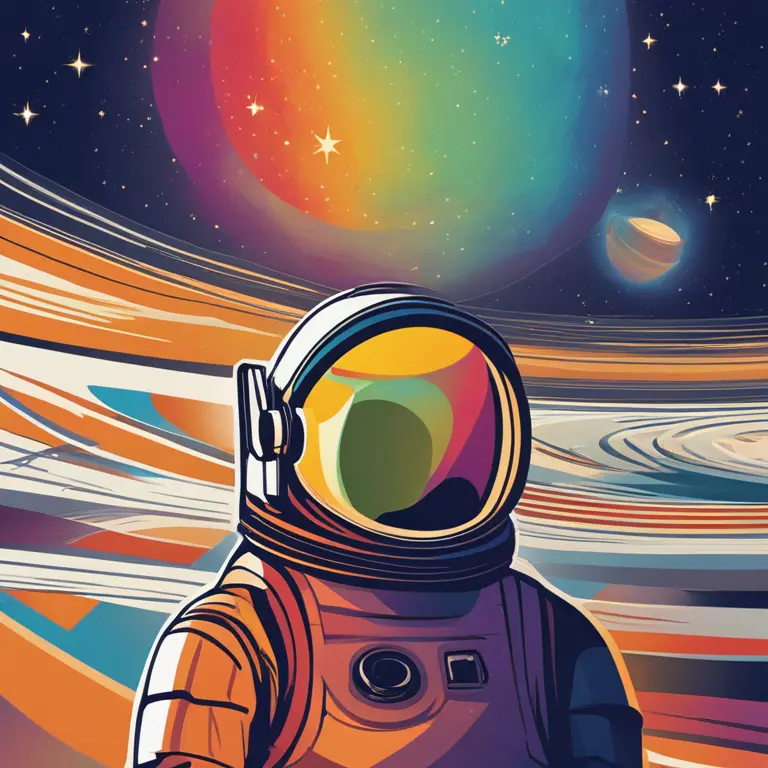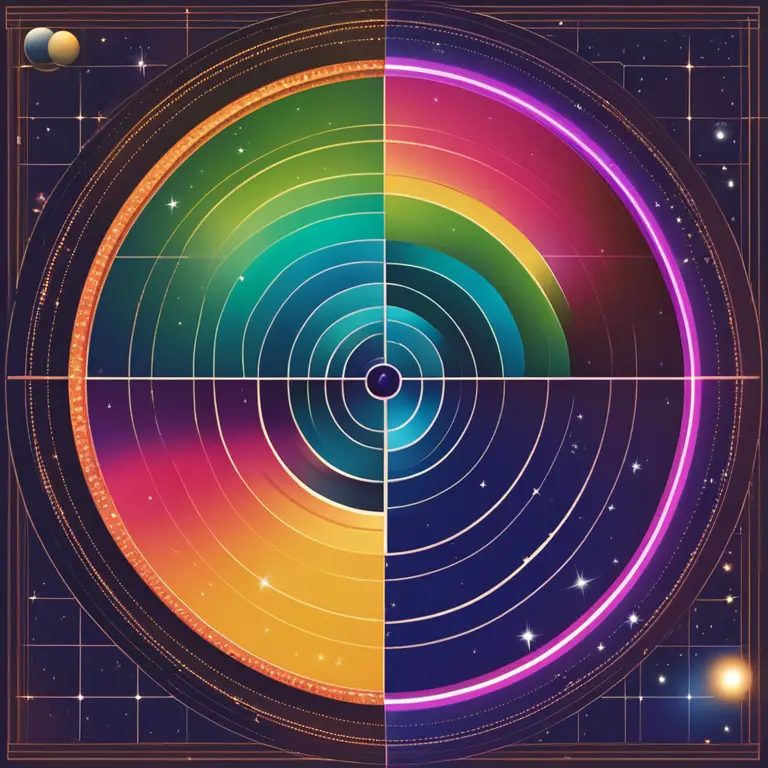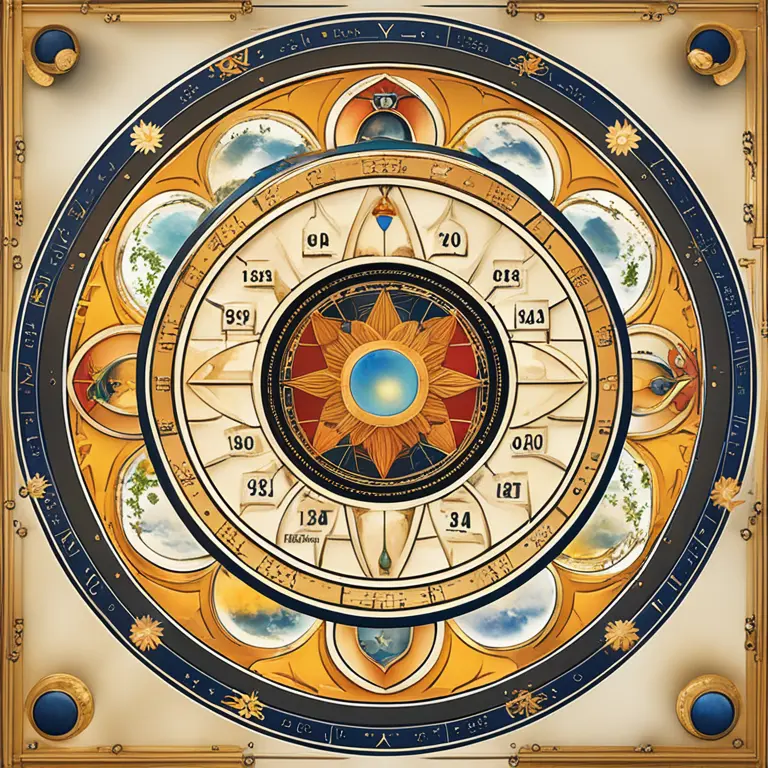
Between Astrology & Astronomy
Delve into the intriguing relationship between astrology and astronomy, the ancient and modern perspectives on celestial observation.
article by Priya Deshmukh
A Shared Origin
The history of astrology and astronomy intertwines in the ancient study of celestial bodies. Centuries ago, these disciplines were one and the same, with early civilizations observing the heavens to glean both scientific and spiritual insights. As our ancestors tracked the movements of stars and planets, they were laying the foundation for both modern astronomy and the mystical interpretations of astrology.

Astronomy's Empirical Approach
As the bedrock of natural sciences, astronomy evolved into a rigorous discipline rooted in observation, mathematics, and physics. It aims to understand the universe's mechanics, exploring phenomena such as gravitational forces, cosmic evolution, and celestial events. Contemporary astronomy employs advanced technology like space telescopes and interplanetary probes to expand our knowledge of the cosmos beyond the limitations of traditional stargazing.

Astrology’s Symbolic Significance
In contrast to astronomy's empirical process, astrology seeks to interpret the influence of the stars and planets on human affairs and terrestrial events. Practitioners of astrology draw upon a zodiac system linked to birth dates and times, positing that the positions of celestial bodies at the moment of one's birth can shape personality traits and forecast life's potential pathways.

A Disciplinary Divergence
The age of enlightenment and the scientific revolution cultivated a schism between astronomy and astrology. The former solidified its status as a scientific field, while the latter's reliance on metaphysical connections subjected it to skepticism and relegated it to the fringes of mysticism. This divergence continues to grow as astronomy's discoveries expand the understanding of the universe, often contradicting astrology's foundational principles.
Modern Perspectives and Acceptance
While most contemporary scientists distinguish astrology from astronomy, acknowledging the former as a belief system and the latter as a science, astrology still holds considerable cultural significance in many societies. Countless people diligently follow horoscopes and regard astrological interpretations as meaningful, demonstrating a sustained human fascination with celestial influences.
The Future of Celestial Studies
Looking ahead, the disciplines may maintain their independent trajectories. Astronomy will continue to benefit from technological advancements and potentially revolutionize our understanding of the universe. Astrology, despite lacking scientific validation, will likely persist as a form of cultural expression, offering personal insights and connections with cosmic rhythms in an ever-changing world.
Published: 1/12/2024
Modified: 1/12/2024
More predictions
Come back here soon to learn more about yourself and your future


Deciphering The Symbolism Of Tarot Cards
A concise guide to the symbolism and interpretation of tarot cards for insight and divination.


The Historical Journey of Zodiac Signs
Embark on a historical journey to discover the inception of the zodiac signs and their influence on astrology today.


The Essence of Zodiac Water Signs
Delve into the depths of the Zodiac's Water signs: Cancer, Scorpio, and Pisces, and their profound influence on personality, emotions, and relationships.